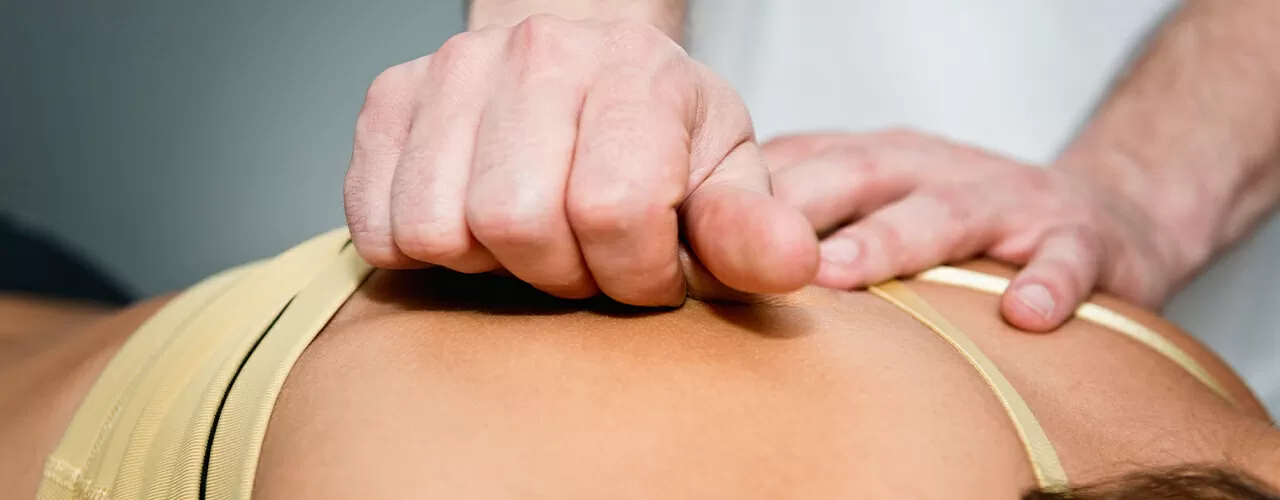
Myofascial Release
How Myofascial Release Works
If you are experiencing stiff or tight muscles, myofascial release may be an option for you. Myofascial release helps with pain relief by easing the tension in your muscles. It is a form of massage performed by your physical therapist that focuses on specific pressure points, aimed at bringing the myofascia back to its elastic form.
If you've been feeling stiff, and you think you could benefit from myofascial release, give our office at the Pelvic Health Center of NJ a call today. We would be happy to set up a consultation and discuss how our treatment services could benefit you!
What Does Myofascial Release Treat?
When your muscles constrict and become tight, your mobility of the affected area becomes restricted, and any movements you make can result in pain. Myofascial release reverses this sensation by loosening up the constricted area, thus promoting easier mobility and less pain.
Some common conditions we treat with myofascial release include:
• Myofascial pain syndrome. This is the most commonly treated condition through myofascial release, and it can affect many of the muscles. The “trigger points” for your myofascial pain are determined and then massaged out.
• Chronic headaches/migraines. Myofascial release has also been known to relieve the pain of chronic headaches and migraines by massaging the tightened muscles around the head and neck.
• Venous insufficiency. Myofascial release can help reduce the amount of blood pooled in the veins and allow for more efficient blood flow, decreasing the pain felt in the veins.
• Temporomandibular joint disorder. The muscles around the jaw are massaged out through myofascial release in many patients with temporomandibular joint disorder. This decreases pain and inflammation, as well as increases mobility.
• Carpal tunnel syndrome. Patients with carpal tunnel syndrome can benefit from myofascial release by having the muscles in their hands, wrists, and/or arms massaged out, in order to improve function and mobility.
• Fibromyalgia. This condition can also cause stiffness in multiple muscles. The affected areas will be determined and then massaged out.
• Injury. Injuries can also cause stiffness. The affected area will be massaged out to loosen up the muscles and allow for a quicker healing process.
What's The Next Step?
Scheduling an appointment is the first step to figuring out whether or not myofascial release is right for you. At Pelvic Health Physical Therapy, our physical therapists will provide you with a thorough evaluation to determine what the best treatment plan will be for you. We understand how inhibiting pain and stiffness can be, and we want to help get you back to comfortably living your life. We'll help lift all of your physical stresses away!
Please email receptionmadison@pelvichealthnj.com to book an appointment, or call our office at 908-443-9880.
Are you ready to live pain free?
Request An Appointment